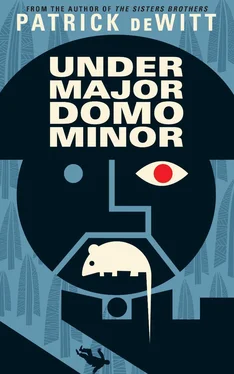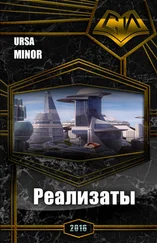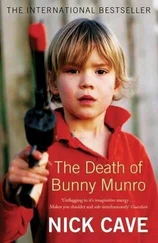“Oh? Is that so?”
“Unfortunately it is. Most unfortunately, actually.”
She crossed her arms. “What is it?”
He thought for a moment. When the lie came to him he clasped his hands solemnly. “I happen to know for a fact that he is engaged to another woman in Horning.”
She laughed. “Who told you this? It isn’t true!”
“Oh, but I’m afraid that it is. Here is my reason for visiting. I’m quitting Bury forever but couldn’t bear the thought of you being made a fool of.”
“Who is a fool?”
“You may do with this information what you will.”
She said, “I think you’re jealous of Tor, Lucy.”
“That is a fact, Marina. I am jealous of Tor. But more than that I am in contempt of him. For if you were mine I would never be seen gallivanting around Horning with another woman on my arm, and introducing her to all I passed as my bride-to-be. She is, I understand, several years younger than you.”
When Lucy set his mind to it, he was a most accomplished liar, that rare stripe who could convincingly relay information running contrary to reality with the utmost sincerity. He could see that Marina was beginning to take him seriously, and he pushed on, telling her, “The dowry is said to be no trifling sum, either. In a way, you can’t really blame Tor.”
“Enough, Lucy,” she said. “Tell me it’s a lie, now. Will you say that it is?”
“I wish that I could. But that’s not possible, because what I’m saying is factual, and I once made a pact with you. Do you recall it?”
Her eyes fluttered and cast about; she was only half listening to Lucy. “A pact,” she said softly.
“You asked me to always be true to you, and I swore that I would be. Oh, but you must remember, Marina. For you made the same pact yourself.”
Her eyes were hollow and doleful and she believed him completely, now. “Lucy,” she said.
“Goodbye!” he said, and he turned to take his leave of her.
Walking away on the springy legs of a foal, he thought, How remarkable a thing a lie is. He wondered if it wasn’t man’s finest achievement, and after some consideration, decided that it was. He experienced a sterling enthusiasm for his future, and his would have been a triumphant getaway were it not for the fact that the assistant train engineer, two hundred kilometres away in Ravensburg, had insisted upon eating a second helping of cheese for his dessert on the night prior.
The assistant train engineer, named Eirik, was entertaining disappointment in the tavern after hearing news that his junior colleague Alexander would be made full engineer, an insult considering Eirik’s seniority and years of loyal service to the company. He had had nine plum brandies when Alexander entered the tavern, nodding his small greetings all around but making no announcement of his advancement, which somehow was worse than if he had, for it was plain just to look at him that he was distending with pride. He took a seat beside Eirik and laid a palm on his back. Eirik felt a measure of pity in that hand, and he rolled his shoulder to remove its weight. Alexander volunteered to buy Eirik a drink but he declined. “Thank you all the same, but I’m not quite destitute yet.”
“I wish you wouldn’t take it that way,” said Alexander.
“Wishing is a pastime for disappointment, nothing more,” Eirik replied. “Take it from one who knows.”
Now Alexander became serious, and he spoke with an edge to his voice Eirik had never heard before: “Look, now. We’ve got to work together. Tomorrow morning and each morning after. You and I have always got along well enough; I do hope there won’t be any problems between us now.”
Eirik found himself regarding the ringed baby flesh of the man’s neck, imagining what it would feel like to grip it in his hands. And in that same unsettling way one realizes he’s left the door to his home ajar, Eirik knew that he could kill Alexander. Not that he would, but that it was possible.
“There won’t be any problems coming from me,” Eirik said, and he excused himself, bowing exaggeratedly before weaving from the tavern and into the road. He went home for his supper but found no solace there, his foul mood compounded by his wife’s miserly cheese portion. His wife was always miserly with her cheese portions but the amount he received that night was even more scant than usual. He sat at the table alone, staring at his empty plate and considering his private theory, which was that his wife secretly ate the cheese herself while he was at work.
“More cheese,” he called.
Her voice, from the larder, was unemotional: “There is none left.”
“How in the world did we eat through an entire wheel in less than half a month?”
“What can I tell you? You eat it, and then it’s gone.”
“But I don’t eat it, that’s just the problem.” He moved to the kitchen and found her stacking plates, her back to him. “You eat it!” he said.
She stiffened, then turned to look at her husband, loathing everything about him: his weak chin, his sour odour, his lopsided moustache, his stoop. The thing was, she really did secretly eat the cheese. No sooner would Eirik leave for work than she would go for the hidden wheel and tug away a goodly sized piece, savouring this in a corner nook otherwise unused save for this lone and lonely activity. But she was unsatisfied in most every aspect of her life, and the cheese was one of the very few pleasures she had. And now it appeared that this, too, would be stolen from her. All right, then , she thought. Take it all, even my smallest happiness. Reaching her arm deep into the cupboard, she removed the hoarded cheese and laid it on the counter before making for the privacy of the attic, where she wept in the full-throated style, feeling just as sorry for herself as a person could ever hope to feel.
Eirik stood awhile, swaying and listening to his wife’s jerky, breathy sobbings. He knew he should move to comfort her but found the desire to do so entirely absent, being far too excited about this unexpected surplus of Gouda. I’ll pay her a visit after a snack, perhaps , he thought, and brought the cheese to the dining-room table, consuming the entire half wheel in addition to a bottle of elderberry wine, afterwards passing out in his chair and suffering through a cycle of horrific dreams and visions: Alexander furiously copulating with his wife while eating his, Eirik’s, cheese; his wife lying on the table nude while Alexander carved elegant swaths into her broad white calf with a paring knife, for she herself was fashioned from cheese; that his penis was cheese which broke off while he urinated; that his penis was cheese his wife nibbled on while he slept — all through the night like this, and so in the morning, in addition to the state of his head from the wine and plum brandy, his sense of peace was compromised as he set out for work.
He arrived at the station ten minutes late with bloodshot eyes and a halo of fumes swarming his head. Alexander recognized the man’s impairment and felt a professional impulse to chastise him.
“So you kept it up last night?” he asked.
“I did what I had to do.”
“And now?”
“Now I’ll do the same.”
An uneasy beginning, then. They spoke little as the hours went by. Eirik’s pain and insult were stubbornly insistent but he knew he would get through the day, and that the next day would not be quite so bad. In passing time, he thought of the loveliness of a glass of brandy, the first glass after a shift, the way it drew down his throat and coated his insides with flammable heat, afterwards leaving an aroma of smoked plum smouldering in his nostrils and mouth when he exhaled. It was very invigorating, that first plum brandy, and he began to look forward to the tavern with earnest, uncomplicated appreciation. His anger diminishing, he decided he would buy his wife a wheel of cheese on the way home from the tavern, and that he would encourage her to eat as much as she wanted, in plain sight — just so long as he could have his fair share as well. And when this ran out, so what if they had to buy another? Perhaps he wasn’t a full engineer, but he earned a good wage and there was room for occasional extravagances so long as they weren’t too dear. Eirik hit his stride with his coal spade and the flames shimmied and spit in the firebox. Sweat ran off his nose and chin and into his eyes, and this was agreeable to him. Life was not such a trial after all, he mused. It wasn’t easy, but then, how dull an experience it would be if it were so. He began to whistle, and this meant that he was happy.
Читать дальше












